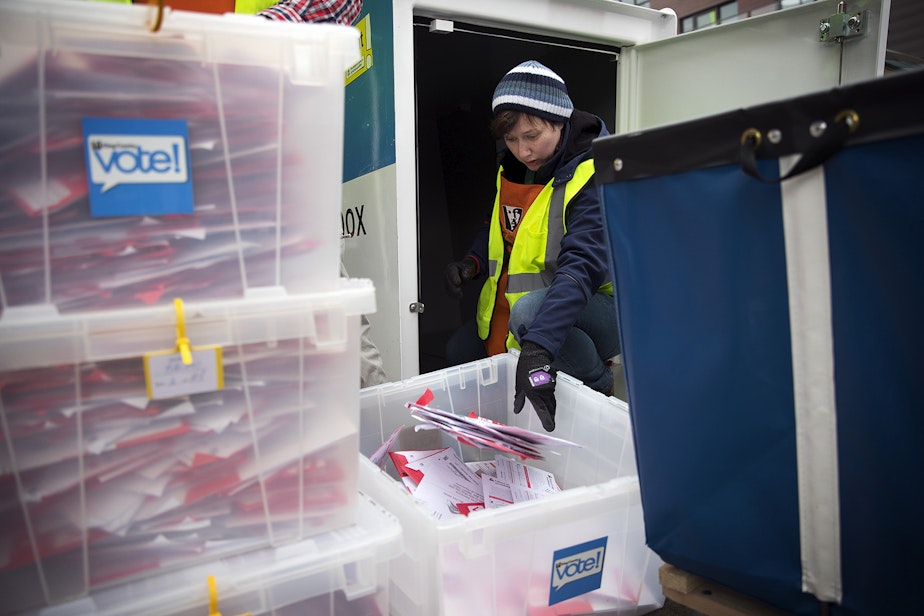Every day, hackers try to get into Washington's voting systems

Kim Malcolm talks with Washington Secretary of State Kim Wyman about the safeguards in place to prevent cyber attacks on Washington's election systems. In 2016, Russian hackers targeted Washington's voter registration system, but were unsuccessful.
This interview was inspired by a listener question. If you want to know something about the news in this region, use the form below.
What do we know about how often hackers try to get into our state's election systems?
We've been really monitoring this activity for probably 15 to 20 years now. And we know what are normal patterns. But we see activity daily of people trying to do things that don't look in that normal sphere of activity. But we see it and we're monitoring it. We’re monitoring it multiple times during the day and looking for anomalies.
We know that Washington state was targeted by hackers in 2016 before the presidential election. Remind us what happened?
We started seeing activity that was suspicious midway through 2016. We contacted the FBI, and later Homeland Security, and had things confirmed that they were seeing activity like that across the country. We had identified some IP addresses and blocked them and they were not able to get into our system.
What were they trying to get access to?
It looks like they were trying to get into our voter registration system through a number of different ways and get to that data. But they not only didn't get in, they weren't able to see it or do anything with any of our data.
And that's the large database you were referring to earlier?
Yes, that's our statewide database that has the 4 million voter registration records on it.
We know we've been targeted before, so what is being done now to enhance security for the 2018 mid-terms coming up this fall?
It's an ongoing process. First we are doing risk and vulnerability assessment. So we're looking at our systems, people trying to get into them — both physical security of the servers and people getting in electronically — and testing that within our own area and having federal authorities come in and do the same thing, and even the state auditor's office has helped us with some of that. We've done some reviews to look at our cyber security program and make sure that the program overall is good. And then just how we manage all of that data is an ongoing process and we're working to educate the county auditors and election officials to also be aware of the cyber threats.
How confident do you feel about the security looking ahead?
I think as confident as we can be. The threat is real. It is 24/7, 365 days a year. They are constantly trying to get in and they only have to be successful once. We have to be successful every time.
The Director of National Intelligence Dan Coats said this week that Russia will try to influence and undermine the midterms this year. They'll be using things like fake news, propaganda, and social media. As our top elections official, what's your response to that warning?
The aftermath of 2016, what I saw was exactly that. They really manipulated social media in a way that we've never seen before. And not only used fake news sites to drum up whatever emotions they were trying to drum up, it was effective because it was undetected. I think there's a higher awareness now. I think our state is all about transparency. So people are buying Facebook ads for example — that needs to be disclosed and if it's affecting the elections in Washington state or in Washington, D.C., then that transparency needs to be made to the public so people know who is backing these candidates or making these statements.


